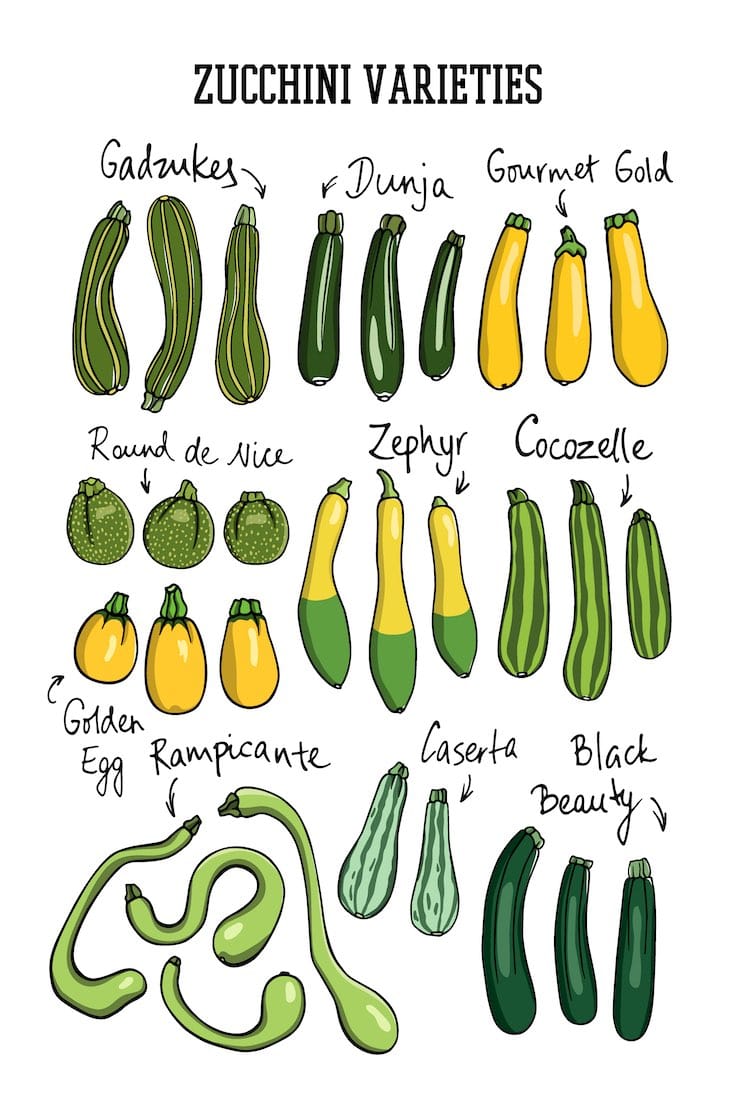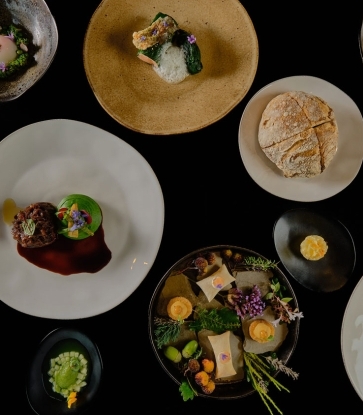When we think about summer produce, zucchini is a plant that, for many, conjures up memories of abundant home gardens and simple dishes like sautéed summer squash, quiches and zucchini bread. Zucchini is a popular summer food that can be enjoyed in a wide range of raw and cooked dishes. Here’s what you need to know about this seasonal staple.
Zucchini, also known as a courgette, is a summer squash that’s part of the Cucurbita pepo plant, which also includes cucumbers, melons and spaghetti squash. It’s thought to have originated in Central and South America but today is grown throughout the U.S. as well as in many European countries such as Italy. Though zucchini is botanically classified as a fruit, it’s generally considered a vegetable. There are many different varieties ranging in color (various shades of greens and yellows, both solid and striped) and size (from large and long to short and squat).
The perfect summer plant, zucchini thrives in warm weather. It’s a good confidence booster for new home gardeners, as it’s easy to plant and grow. Plant zucchini seeds in full sun and in warm soil. While its peak season is in the summer, in warmer climates, zucchini can be planted in both spring and fall. A ripe zucchini will be uniform in color and firm to the touch, with just the slightest amount of give but without being too soft. You can purchase zucchini fresh at your local grocery store or farmers market.

Because zucchini is about 95% water, it’s a great food to help you stay hydrated in hot weather. While low in calories (one cup of raw zucchini only has about 17 calories), zucchini provides a lot of important nutrients. One cup contains 40% of your daily needs vitamin A, 16% for manganese, 14% for vitamin C, 13% for potassium, 10% for magnesium, 9% for vitamin K and 8% for folate. Zucchini has also become popular in low-carb diets, as a one-cup serving only contributes three grams of carbohydrates. You’ll also get about a gram of fiber per serving. Zucchini also has been shown to contain antioxidants like lutein, zeaxanthin and beta-carotene, which are beneficial to skin and eye health.
Zucchini has a mild, cool flavor that’s just barely sweet, making it a versatile ingredient for a wide range of dishes, and can be enjoyed raw or cooked. Raw zucchini rounds or wedges can be used as a refreshing, hydrating alternative to chips for dipping in hummus or guacamole. It can be sliced into half-moons and sautéed or cut into thin coins and roasted until crispy. Marinated zucchini slices are delicious when cooked on the grill. For a crispy side dish or starter, try sliced zucchini battered and breaded before being quickly deep- or air-fried.
Grated zucchini can be added raw to salads, cooked into fritters or baked into zucchini bread or muffins. Incorporating grated zucchini into a sauce or even into meatballs or meatloaf bulks up the dish and adds nutrients. It’s even delicious cooked into sweet or savory oatmeal. With the rise in popularity of low-carb diets, spiralized zucchini has become a go-to substitute for noodles in stir-fries, pasta-inspired dishes and soups. Pre-made zucchini noodles can be purchased fresh or frozen. You can also make your own with a handheld or tabletop spiralizer or even using a vegetable peeler. Wide-cut zucchini ribbons have also been used as a stand-in for lasagna noodles.
Chefs at MICHELIN-recommended restaurants have used zucchini on their menus in all kinds of creative ways. At Quince in San Francisco, chef Michael Tusk has used zucchini noodles with tender squid for a creative starter. In New York City, chef and Ulivo co-founder Emanuel Concas celebrates Italian cuisine, pairing fried zucchini with grilled shrimp in an enticing starter that’s perfect for sharing with a group. At Chicago’s Mi Tocaya, chef/owner Diana Davila adds zucchini to an earthy stew with cactus and green chiles. And at Kubeh, also in NYC, chef and owner Melanie Shurka shares what she learned in Israel about the art of making kubeh (dumplings). The menu features a Syrian lamb version she pairs with a broth that includes chard and zucchini.
Whether you cook it at home or enjoy it in a restaurant, zucchini makes a delicious, nutrient-dense addition to your diet.




















